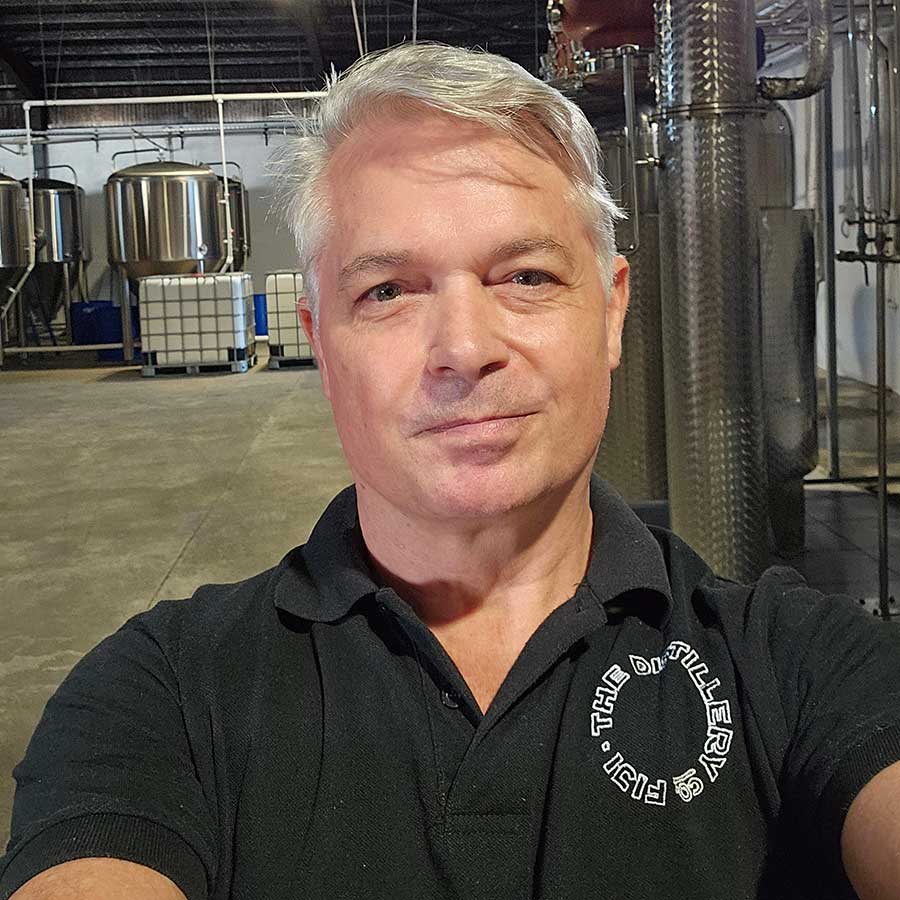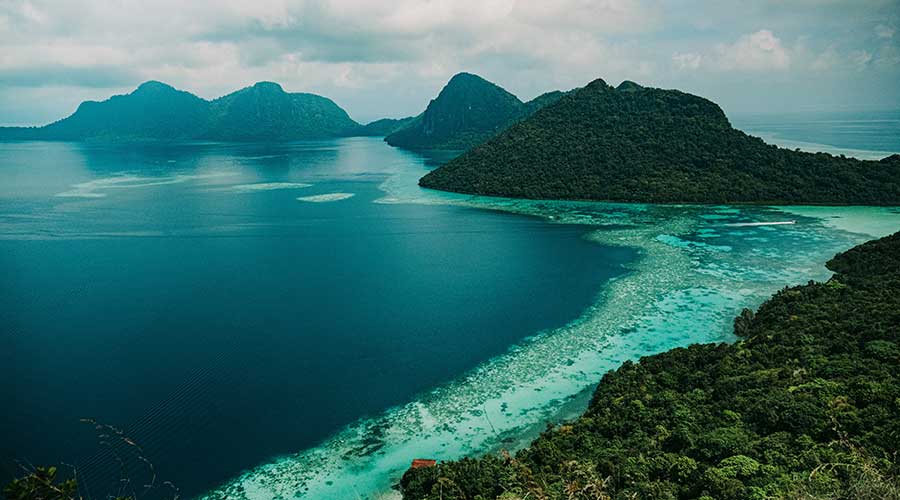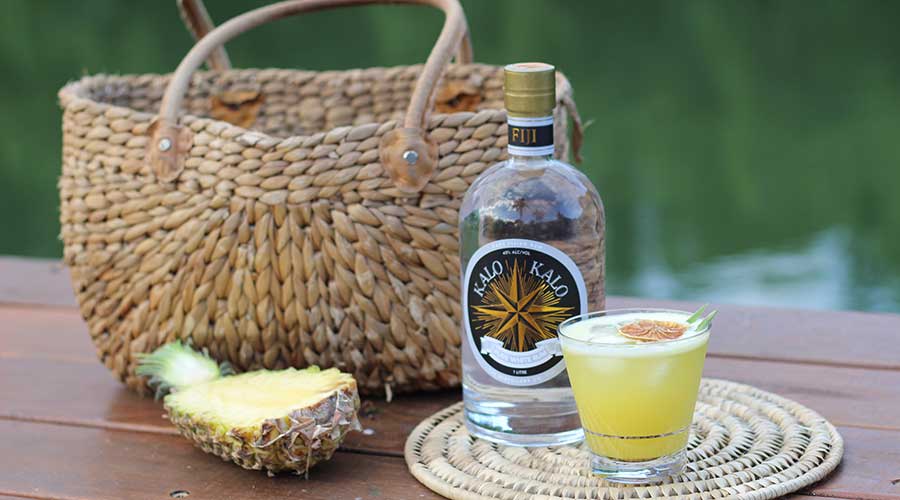Few people outside the country know it, but Fiji is home to a second distillery that produces gin, vodka and… rum, of course. With 60,000 litres of rum currently being aged, we’re likely to get to know the Distillery Co of Fiji very quickly in any case.
Tell us about the beginnings of Distillery Co Of Fiji
My great-grandfather came here in 1860 to record all the flora in Fiji and he stayed! Producing excellent rum has always been our long-term goal but, like most distilleries, we started with a white spirit and became very successful in a very short time.
In terms of rum, our KaloKalo white rum is currently on the market and is probably the best-selling white rum in Fiji. For the last two years, it has been the highest rated white rum at the London Spirit Awards. But we don’t put much emphasis on awards, people buy our rum for its quality and not for any medals!
Do you know how many tonnes of sugar cane Fiji produces each year?
I think it’s around 2 million tonnes, which goes into sugar production, but like most sugar factories, it’s not financially viable and has been supported by the government for years. We export most of our molasses.
How many distilleries operate in Fiji? Only Rum Co and you?
Just two!
Why are there so few distilleries?
Fiji is a challenge – political instability and brain drain, the obstacles are many, building a distillery here is a very difficult proposition.
What raw materials do you use?
We currently use molasses for the rums, but we’re testing sugar cane juice for neutral alcohol, and we’ve tested agricole, but it would be a small project because the market isn’t very big.
Where does the raw material come from and what is the terroir of the rums you produce?
Fiji is volcanic and the soils are volcanic. The soils are rich and deep, but lack nutrients. We’re going to plant our own sugar cane in the near future and crush it 7 months a year, but for the moment most of our supplies come from the Fiji Sugar Corporation.
What are your fermentation methods?
Any good distiller will tell you that fermentation is the most important part of the process, and it’s true, our ferments vary in acidity depending on what we’re producing – a deep, funky classic rum will be fermented with a much more acidic base than a lighter or neutral rum. We don’t really give information about our processes for obvious reasons, but fermentation takes between 4 and 6 days.
What are the distillation methods?
We use several stills: a continuous stripper, a 2,000-litre still for the stripping and the gin, and a 30-tray reflux column for the neutral. The rest is a manufacturing secret!
How are the rums aged?
We put rums in first-use bourbon casks, and some in rye whisky casks, but honestly it doesn’t make much difference, the key is the fermentation and distillation method. The rums will sit for a minimum of 2 years, but with casks set aside for 10 and 20 years, we have to allow for over-ripening, so I’ll let you know when we’ve reached that point!
What are the distinctive flavours of your rums?
As I said, the only rum we currently market is KaloKalo, a rich white rum with notes of vanilla and molasses, but with a very clean finish. The house’s standard rum is a “dirty” rum, deep and molasses-ridden, dry on the front and very persistent on the finish. I’ve just tasted a 13-month-old rum and it’s coming along very nicely.
We don’t add any sugar, molasses or caramel, it’s pure rum. We’re making a different type of rum, lighter, with less esters, which tastes very much of caramel and vanilla, it’s almost similar to a very light whisky – it’s designed to be drunk over ice and will be a very impressive rum when it’s ready. I’m really looking forward to creating an excellent old Fijian rum.
What are your future plans?
We currently have 30,000 litres of dark rum in casks and we plan to add 20,000 litres a year. Once we’ve built our new facilities, we’ll go up to 40-60,000 litres a year, or around 500,000 bottles a year within three years.
Read also :
Focus terroir – Fiji, rum from the ends of the earth unveiled
A tasting with Planteray and the 1802 bar



